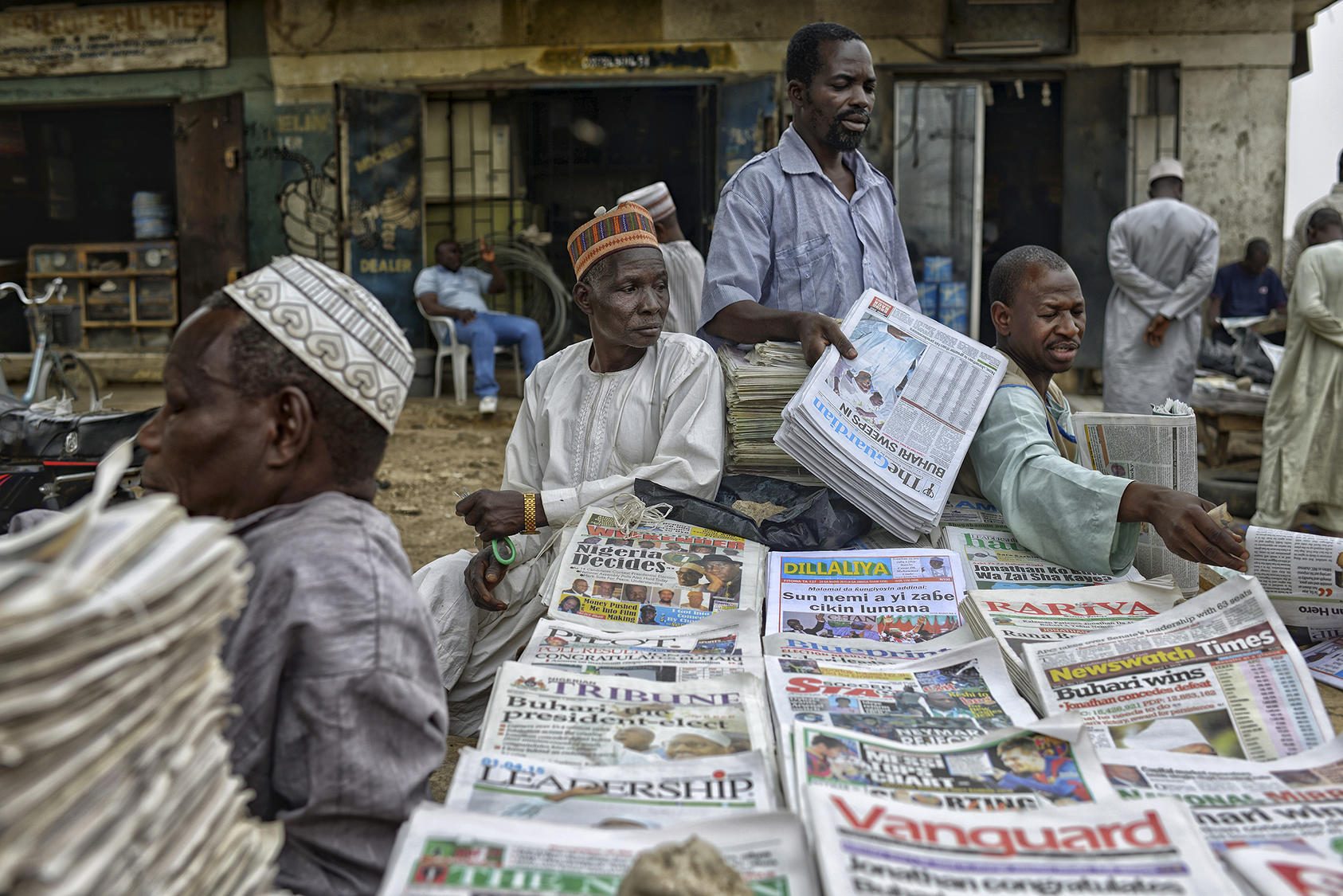A series of physical attacks against journalists have eclipsed Cabinet approval of a draft legislation to repeal criminal libel in Sierra Leone. It is a major boost to press freedom in the country in what should have been the outstanding story in West Africa’s freedom of expression space in September.
There was the dismal incident in Uyo, Akwa Ibom State in Nigeria on September 24, 2019 when police brutalized protesters, with one person reportedly shot dead, while two journalists covering the incidents were beaten, also by the police.
Okodi Okodi and Owoidoho Udofia, who work with a private radio station, Inspiration FM, in Uyo, were covering the protest when they were accosted by the police, together with their driver, Mfon Eyibio.
“They asked us to remove our shirts and then forced us to roll back and forth on the floor,” the journalist said of the ordeal at the police station.
In another case of assault against journalists, an Assembly member for Mantse Agbona, a suburb of Accra, led some residents of the area to physically attack David Andoh, a photojournalist with Joy News on September 10.
Andoh had joined metropolitan health officials and security officers to cover a public health and sanitation enforcement and sensitisation exercise at Mantse Agbona. The photojournalist was filming a filthy environment that posed a public health hazard when he was pounced on. His camera was damaged as a result.
In Sierra Leone, a group of men reported to be bodyguards of President Julius Maada Bio assaulted three sports journalists during a football match at the Siaka Stevens Stadium in Freetown on September 8, 2019. Two of the assailants who were identified by their nicknames, Sweet and Kposowa, had a verbal confrontation with Frances Bernard-Bundor and Esther Maray Samoura, both working for the state-owned Sierra Leone Broadcasting Corporation (SLBC), after they (the assailants) stormed the commentary box. The guards accosted the two and another journalist, freelancer Alimmamy Kamara, and assaulted them. Esther’s phone was snatched as she tried to record the assault.
The month also recorded threats against journalists and arrests and detentions of journalists and activists.
On September 16, 2019 journalist Mary Ekere, who reports for The Post newspaper in Uyo, capital of Akwa Ibom State, was arrested for taking pictures of an operation by an Environmental and Waste Management Agency set up by the Government of the State. She was put before court on September 17 and returned to prison for a second night on charges that are still not clear.
Meanwhile, a regional editor of the Premium Times, Cletus Ukpong, who reported on the illegal arrest and detention of Ekere and shared it on his timeline, was also threatened with arrest and imprisonment by a close associate of the State Governor.
Nigeria’s State Security Service (SSS) arrested a journalist and activist, Chido Onumah, for wearing a shirt with an inscription considered provocative. Onumah, a regular columnist and an editorial board member of PREMIUM TIMES newspaper, was accosted by officers of the SSS at the Abuja airport and taken to the security agency’s headquarters in Abuja. Onumah, who was detained for five hours, later told PREMIUM TIMES that he was arrested because he wore a shirt with the inscription, “We Are All Biafrans,” also the title of his published book.
Other Developments
In what amounts to a major boost for press freedom and freedom of expression in Sierra Leone, Cabinet of President Julius Maada Bio on Wednesday September 11, approved a draft bill to repeal the Criminal and Seditious Libel laws of the 1965 Public Order Act. The notorious Act has been used over the past decades to suppress and muzzle press freedom in the country. The move to repeal it, which was a campaign promise of the President, has been widely hailed.

“This is part of opening government up to responsible scrutiny,” the Minister of Information and Communication, Mohammed Rahman Swaray, emphasised in his announcement of the decision to journalists.
The National Press Centre – Norbert Zongo, MFWA’s national partner organisation in Burkina Faso, successfully held the eighth edition of its biennial International Festival of Freedom of Expression and of the Press (FILEP). Held from 25 September 28, 2019 in Ouagadougou, the festival was under the theme; “pens, microphones and cameras for a free and united Africa.” It brought together around 400 participants from 37 countries across Africa made up of editors, journalists, media and human rights defenders, important media personalities and free expression artistes.
Participants called on African governments to put media development and access to information at the heart of their anti-corruption efforts. They also urged the governments of countries where journalists have been murdered of disappeared including Ghana, Mali, Guinea and Nigeria, to double their efforts at investigating and unraveling these cases.
On September 25, 2019, the Media Foundation of West Africa (MFWA) and the RTI (Right to Information) Coalition in Ghana, convened a Public Forum to deliberate on the planned implementation of Ghana’s RTI law. Held under theme “Implementation of RTI Law: How will Ghana’s be Different,” the Forum brought together high-profile lawyers, journalists, representatives from government Ministries and other key stakeholders to propose ways for the effective implementation of that newly passed RTI Law.
Ghana’s Parliament passed the RTI bill on March 26, 2019 after about a decade since it was first drafted. Two months later, on May 21, President Akufo-Addo assented the bill into law paving the way for its implementation from 2020.






